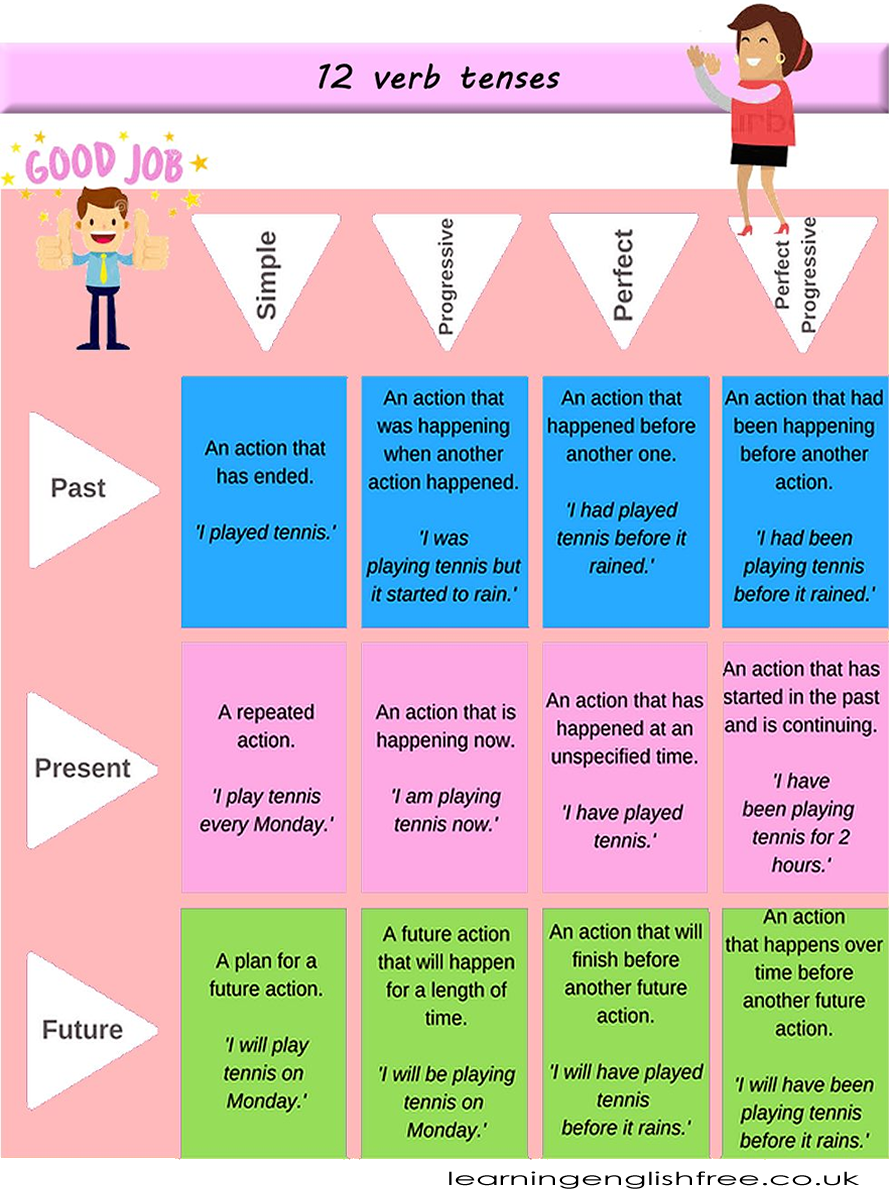Understanding Verb Tenses
Welcome to our comprehensive lesson on the 12 verb tenses in English. Verb tenses are crucial for expressing time and action in English. This lesson will cover each tense, providing examples and explanations to help you understand their uses. By mastering these tenses, you will be able to accurately describe actions and events, whether they occurred in the past, are happening in the present, or will happen in the future.

Tips for Learning English Verb Tenses
Verb tenses can be challenging, but with regular practice, you can master them. Try using these tenses in your daily conversations and writing. Pay attention to the context in which different tenses are used when you read or listen to English. This practical application will help reinforce your understanding and make these tenses a natural part of your English proficiency.
The 12 Verb Tenses with Examples
-
Simple Present: An action that is habitual or general.
Example: "I play tennis every Monday." -
Simple Past: An action that has ended.
Example: "I played tennis." -
Simple Future: A plan for a future action.
Example: "I will play tennis on Monday." -
Present Progressive: An action that is happening now.
Example: "I am playing tennis now." -
Past Progressive: An action that was happening when another action happened.
Example: "I was playing tennis but it started to rain." -
Future Progressive: A future action that will happen for a length of time.
Example: "I will be playing tennis on Monday." -
Present Perfect: An action that has happened at an unspecified time.
Example: "I have played tennis." -
Past Perfect: An action that happened before another one.
Example: "I had played tennis before it rained." -
Future Perfect: An action that will finish before another future action.
Example: "I will have played tennis before it rains." -
Present Perfect Progressive: An action that has started in the past and is continuing.
Example: "I have been playing tennis for 2 hours." -
Past Perfect Progressive: An action that had been happening before another action.
Example: "I had been playing tennis before it rained." -
Future Perfect Progressive: An action that happens over time before another future action.
Example: "I will have been playing tennis before it rains."
Embracing Verb Tenses for Effective English Communication
In this lesson, you've explored the 12 verb tenses in English. Each tense serves a unique purpose, enabling you to convey time frames and action dynamics accurately. Understanding these tenses is a significant step towards fluency in English.
Remember, learning verb tenses is a gradual process. Don't be discouraged by initial challenges. Practice regularly, and try to use these tenses in various contexts. Listening to native speakers and engaging in English conversations will also greatly aid your learning process.
Revisit these tenses often, and don't hesitate to practice them in writing and speaking. Sharing your learning journey with others can make the process more enjoyable and rewarding.
For more insightful English lessons, remember to visit and engage with our community at www.facebook.com/learningenglishfree.co.uk. Share our platform with family and friends, and keep exploring the fascinating world of English together!
